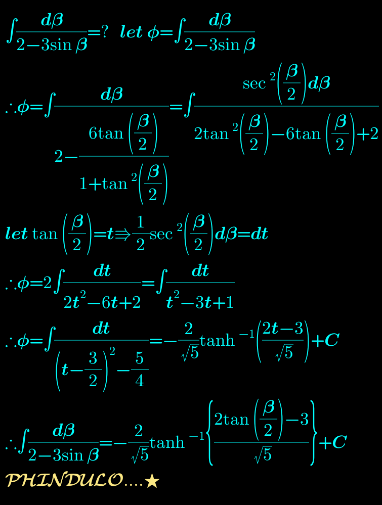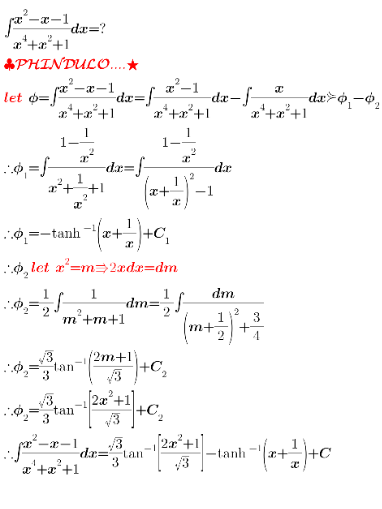
IntegrationQuestion and Answers: Page 77
Question Number 149625 Answers: 1 Comments: 0
Question Number 149608 Answers: 4 Comments: 0
Question Number 149498 Answers: 2 Comments: 0
$$ \\ $$$$\int\frac{{px}+{q}}{\:\sqrt{{x}^{\mathrm{2}} +{r}^{\mathrm{2}} }} \\ $$
Question Number 149329 Answers: 1 Comments: 1

Question Number 149273 Answers: 3 Comments: 0
Question Number 149241 Answers: 2 Comments: 0

Question Number 149205 Answers: 1 Comments: 0
$$\int_{−\infty} ^{\mathrm{0}} \frac{{t}}{\left(\mathrm{1}−{t}\right)^{\mathrm{2}} }{dt} \\ $$
Question Number 149157 Answers: 1 Comments: 0
Question Number 149156 Answers: 0 Comments: 0
Question Number 149113 Answers: 1 Comments: 0
Question Number 149112 Answers: 0 Comments: 2
Question Number 149106 Answers: 0 Comments: 0

Question Number 149081 Answers: 1 Comments: 0

Question Number 149080 Answers: 0 Comments: 0

Question Number 149023 Answers: 1 Comments: 0
Question Number 148981 Answers: 0 Comments: 0
Question Number 148942 Answers: 0 Comments: 0
Question Number 148905 Answers: 1 Comments: 0

Question Number 148895 Answers: 0 Comments: 2

Question Number 148856 Answers: 0 Comments: 3
Question Number 148854 Answers: 0 Comments: 0
Question Number 148815 Answers: 0 Comments: 0
Question Number 148809 Answers: 1 Comments: 0
Question Number 148816 Answers: 1 Comments: 0
$$\int_{\mathrm{0}} ^{\infty} {x}^{{m}} {e}^{{ix}^{{n}} } {dx}=?? \\ $$
Question Number 150871 Answers: 1 Comments: 0
Question Number 148720 Answers: 4 Comments: 0
